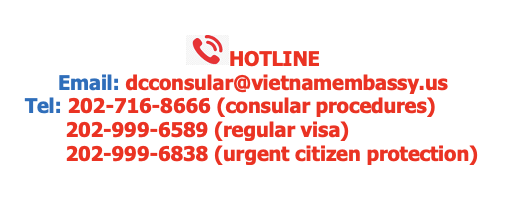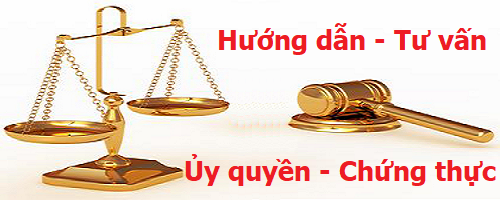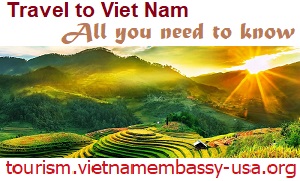Any distortions become meaningless and useless
VOVNews: What do you think about the Party and State’s policy on religious activities and for Buddhism in particular?
Most Venerable Tu: The Party and State attach great importance to creating favourable conditions for various religions to develop. Just after Vietnam gained its independence in 1945, President Ho Chi Minh signed a decree recognising the right to religious freedom for the people. It affirmed that all Vietnamese citizens have the right to freedom of religion and beliefs and nobody is allowed to violate that right. Such a spirit has been maintained and developed during the past 50 years. Vietnam’s consistent policy is not to discriminate and not violate the right to religions and beliefs of its citizens, thereby facilitating religious practices. Specifically, more religions have been founded and more worshipping places have been built and refurbished. More religious followers have been sent to domestic and overseas training courses. Special attention has been also given to religious publications. Those achievements show that Vietnam’s policy on religions and beliefs has paid off and created mutual understanding among ethnic groups and between religious and non-religious followers to ensure the right to equality before the law.
Entering Vietnam approximately 2,000 years ago, Buddhism has received special attention and care from the State to develop. To date, we have 28 high schools, four colleges and three institutions. Thousands of Buddhist students have been sent to training courses inside and outside the country. More importantly, the number of Buddhist followers is increasing, accounting for four-fifths of the total population.
VOVNews: There exist arguments that Vietnam violates the right to religious freedom. In its annual report, the United States has many times accused Vietnam of "seriously violating people’s right to religious freedom". What do you think about this viewpoint?
Most Venerable Tu: Congressmen from the US House of Representatives and the Senate raised that question to me. I told them that every Vietnamese citizen enjoys the right to religious freedom and I advised them to visit Vietnam to explore the real situation in the country. Seeing is believing, I told them. Many foreign delegations, including those from the United Nations, the US and France, have visited Vietnam for this purpose and agreed that Vietnam has progressed in religious freedom.
However, some hostile forces have left no stone unturned to sabotage the Vietnamese State. They have tried to slander Vietnam, even organised and incited local people to cause social disorder in some localities. After the Vietnamese State took necessary measures to deal with troublemakers, some congressmen from the House of Representatives claimed that Vietnam violate religious freedom and did not respect people’s beliefs and human rights.
I told them that Vietnam did not violate the right to religious freedom, but only dealt with troublemakers and violators of national security. I said that according to the Vietnamese law, anyone who violates national interests, social order and security will be dealt with, regardless of their social status.
I also told them that all countries in the world, including the US, must do so to ensure national security and social order. National laws are applied for everyone.
VOVNews: Reality shows that hostile forces overseas distort and fabricate Vietnam’s religious policy. Meanwhile, Vietnam has a large amount of nationals living overseas. What has the Vietnam Buddhist Shangha done to help overseas Vietnamese better understand the religious situation in the country?
Most Venerable Tu: The State has established a special television channel (VTV4) for overseas Vietnamese. This channel has made positive and effective contributions to increasing the awareness and understanding of the country’s socio-economic development as well as religious development among the overseas Vietnamese community.
Recently, the Political Bureau released Resolution 36 on work relating to overseas Vietnamese. The resolution asked all agencies and religious organisations, including Buddhism, to create favourable conditions for overseas Vietnamese to return to their homeland. During the past months, many overseas Vietnamese returned to their homeland and saw with their own eyes positive changes in the country. Such exchanges promoted a new image of Vietnam within the community.
The Vietnam Buddhist Sangha has organised fact-finding tours for the overseas Vietnamese community abroad to explore their religious activities and establish relations. In a visit to France, we helped overseas Vietnamese there build a pagoda and they were very happy and grateful.
In fact, overseas Vietnamese or any foreigners, whenever they come and explore religious activities, all understand the real situation in Vietnam. Any distortions become meaningless and useless.
VOVNews: As a religious activist, what do you think about the Ordinance on Religions and Beliefs which was recently approved by the National Assembly and will come into force on November 15, 2004? Do you think that the Ordinance will really guarantee the people’s right to freedom of religions and beliefs and equality before the law?
Most Venerable Tu: The ordinance had been approved after 25 revisions and thorough discussions. Its articles make clear the right to religious freedom for the people. Article One of chapter One stipulates that "Vietnamese citizens have the right to freedom of religions and beliefs and of non-religion and non-beliefs, and that right is guaranteed by the State. All religions are equal before the law. Religious and non-religious people must respect each other."
Accordingly, the new Ordinance really guarantees the right to religious freedom and equality before the law for any Vietnamese citizens, regardless of their beliefs.
VOVNews: An exchange between Vietnamese and European Buddhism is expected to take place early next year. Could you give more details about this event?
Most Venerable Tu: I cannot talk in detail about the event because it is currently being planned by the two sides. The Vietnam Buddhist Sangha will give instructions and supervision over the meeting. I think our task is to make our guests (being overseas Vietnamese and foreigners) better understand the Vietnamese Party and State’s policy on religions, i.e. to build the bloc of great national unity.
VOVNews: Thank you very much.



